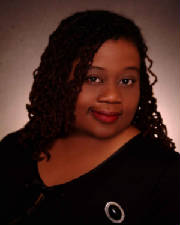 “Be flexible; what works today may not work tomorrow.”
“Be flexible; what works today may not work tomorrow.”
Barbara Romzek believes this motto can apply to anyone’s career and life plans. Certainly, it is one that she herself has lived by. When Romzek received an AAUW American Fellowship in 1978, she had already learned the importance of being open to change. Describing her academic career as an “evolutionary process,” Romzek changed her research focus while she was a student during the Cold War. She switched from a comparative study of the challenges that U.S. and Soviet government employees face in balancing personal lives with public sector jobs to an exclusive focus on government employees in the United States. Concerns about accessing reliable data and being able to have open and honest conversations, given the tense political situation, prompted her to concentrate on the United States.
Romzek credits her AAUW fellowship with allowing her to dedicate a year to writing, which she says made for a better dissertation and ultimately a better job. That extra year became pivotal for her career path. After completing her doctorate, Romzek began teaching at the University of Kansas School of Public Affairs and Administration, an opportunity she sees as being directly tied to her research and fellowship.
Becoming an administrator was not something Romzek had planned. After more than a decade of teaching, she reluctantly accepted her department’s chair position. For years, Romzek’s research had been in public administration, so the new job was almost like field work. It did not take long before Romzek discovered that she found the job intellectually and personally rewarding. From there she continued to rise through university administration. Last summer, she left Kansas to move to Washington, D.C., to be the new dean of the School of Public Affairs at American University.
With all her responsibilities as dean and professor, Romzek still finds time to publish academic articles and contribute to books. Until recently, her writing focused on formal accountability in public administration, which has to do with balancing responsiveness and efficiency while doing your best at work and being a well-rounded person overall — no small task for employees. Lately, Romzek has been writing about informal accountability between government contractors who are not required to work together but should. For example, contractors in social services like foster care and mental health agencies do not have to consult each other, but it is in the best interest of a child in their care that they do communicate. After a career of research and work in public administration, Romzek is still intrigued by the subject and continues to write about it.
According to Romzek, everyone should “develop a plan that allows you go get to the life you want, but be flexible with your goals along the way.” Life is all about hard work, perseverance, direction, and flexibility. The combination has been successful for Romzek. She proves that dedication, passion, and a willingness to adapt make for an impressive path.
Romzek’s American Fellowship was sponsored by the Florence Edna Rowe American Fellowship, an endowment created by AAUW of Texas in 1964.
This post was written by AAUW Fellowships and Grants Intern Emily McGranachan.







 2003–04 AAUW American Fellow Gwendolyn Pough was drawn to black feminist thought when one of her professors gave her a copy of bell hooks’ Ain’t I a Woman: Black Women and Feminism. While working toward her master’s and doctoral degrees in English from Northeastern University and Miami University in Ohio respectively, she sought out texts by women of color that often weren’t included on class syllabuses. She became interested in how black women use language and rhetoric, how they shape cultural spaces, and how they express a feminist consciousness.
2003–04 AAUW American Fellow Gwendolyn Pough was drawn to black feminist thought when one of her professors gave her a copy of bell hooks’ Ain’t I a Woman: Black Women and Feminism. While working toward her master’s and doctoral degrees in English from Northeastern University and Miami University in Ohio respectively, she sought out texts by women of color that often weren’t included on class syllabuses. She became interested in how black women use language and rhetoric, how they shape cultural spaces, and how they express a feminist consciousness.
 It’s been two months since the U.S. Supreme Court’s ruling in the Wal-Mart v. Dukes case prevented the women of Wal-Mart from taking on the nation’s largest employer as a nationwide, class-action group. But gender discrimination doesn’t take a day off, and neither does AAUW.
It’s been two months since the U.S. Supreme Court’s ruling in the Wal-Mart v. Dukes case prevented the women of Wal-Mart from taking on the nation’s largest employer as a nationwide, class-action group. But gender discrimination doesn’t take a day off, and neither does AAUW. 




